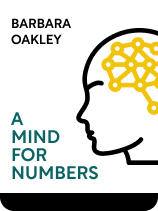

This article is an excerpt from the Shortform book guide to "A Mind for Numbers" by Barbara Oakley. Shortform has the world's best summaries and analyses of books you should be reading.
Like this article? Sign up for a free trial here .
What makes information easy to remember? What are some specific factors of memorability?
If you want to get information to stick in your memory, it helps to recall it often. Of course, it also has to be memorable to begin with. Memorability increases as the information connects to more and more parts of your brain.
Read more to learn how to remember something by making it more memorable in the first place.
Making Information More Memorable
Your memory depends on “chunked” information. Oakley explains that the more connections the chunk has, the more memorable it is, and the more often you access it, the stronger the connections become. More connections and stronger connections both make a chunk more accessible. Thus, there are two factors that determine how well a concept will stick in your memory: how memorable it is, and how often you recall it.
Oakley’s discusses techniques for making information more memorable by connecting it to more parts of your brain, starting with an overview of the factors of memorability.
12 Factors of Memorability
If you want to know how to remember something, start by making it more memorable to begin with. From Oakley’s discussion, we can identify a number of factors that determine how intrinsically memorable a piece of information is. In Moonwalking with Einstein, Joshua Foer similarly identifies factors that make information more memorable. The factors that Oakley and Foer identify are similar, but not identical. For comparison, we have extracted the following list of memorability factors from both A Mind for Numbers and Moonwalking with Einstein:
The Sensory Factor: According to Oakley, the more sensations (smell, feel, sound, visual appearance) you attribute to a concept, the easier it will be for you to remember.
- (Shortform note: Foer echoes this assertion, pointing out that every sense you connect an idea to provides one more possible cue to help you remember it. Suppose you’re memorizing your grocery list, and the first thing on your list is garlic. If you take time to picture what the garlic looks like, smells like, and tastes like, you have a much better chance of remembering it than if you just try to remember the word “garlic.”)
The Association Factor: According to Oakley, the more existing chunks of information you can associate a new piece of information with, the easier it will be for you to remember. Oakley further asserts that this holds, regardless of whether the associations are actual or metaphorical.
- (Shortform note: Foer implies this in his discussion of the sensory factor, but doesn’t generalize it quite as much as Oakley does. By way of illustration, he says that if you’re shown a picture of a person and told that her last name is Baker, you won’t remember “baker” as well as if you’re told she is a baker. This is because “Baker,” as a name, is an abstract concept without much to associate with it. As a profession, however, “baker” has more associations with other information in your brain, like the feel of kneading dough, the smell of cookies, the heat of an oven, and so on. Therefore, you should aim to associate anything you want to remember, even something as abstract as a person’s last name, with as many sensations as you can. This example serves to illustrate the association factor, even though the associations it presents are primarily sensory.)
The Movement Factor: According to Oakley, you are more likely to remember something if it involves moving your body.
- (Shortform note: Foer does not mention this factor. As Drazdzewski points out in a recent study of the relationship between memory and motion, this factor has been studied less than many of the other memorability factors.)
The Humor Factor: According to Oakley, the more something makes you laugh, the easier it is for you to remember it.
- [Shortform note: Foer reiterates this principle, and relates it to the novelty factor (which we will discuss shortly), saying that we naturally find humor interesting, and that makes it easier to remember.]

———End of Preview———
Like what you just read? Read the rest of the world's best book summary and analysis of Barbara Oakley's "A Mind for Numbers" at Shortform .
Here's what you'll find in our full A Mind for Numbers summary :
- How to make math and science intuitive
- Strategies for remembering complex concepts more easily
- How to build good study habits and avoid procrastination






